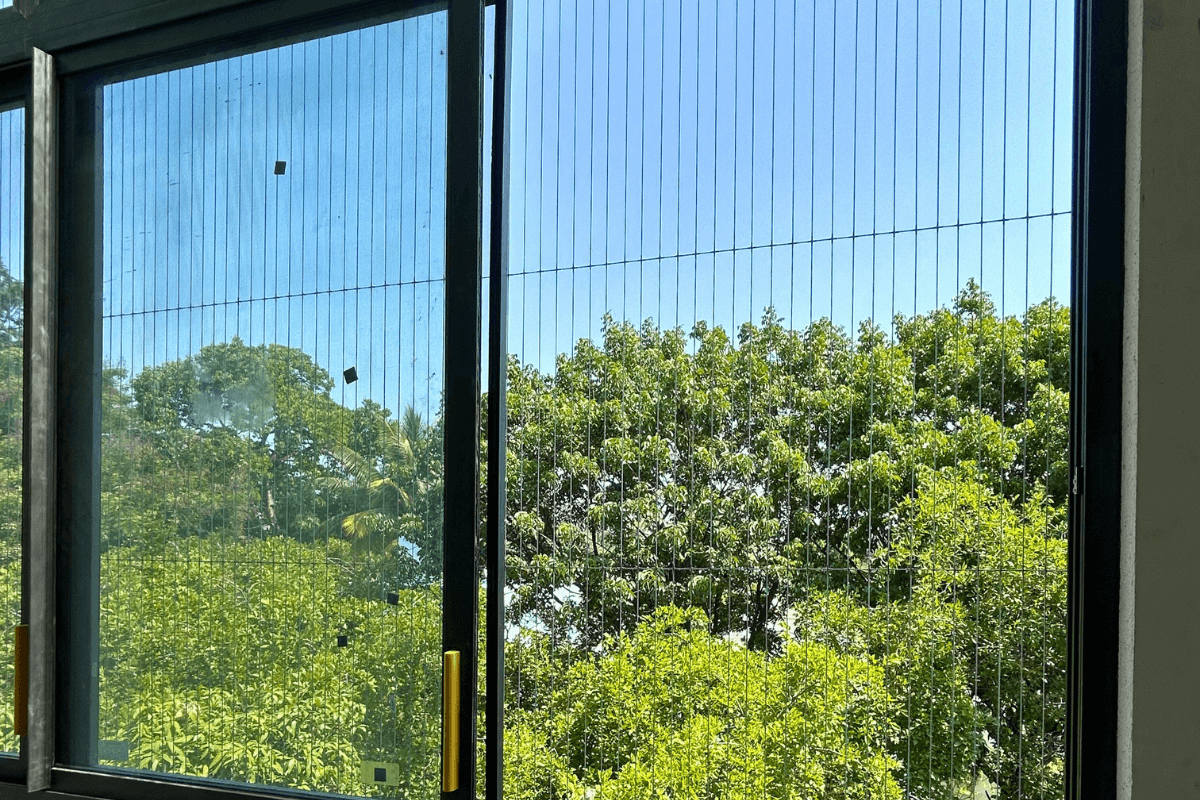
Invisible Grill A Green Product
Invisible grills can be considered a “green” or environmentally friendly product based on several factors. Here’s how they align with sustainability principles:
Environmental Benefits of Invisible Grills
1. Material Durability:
⦿ Long Lifespan: Invisible grills are typically made from high-quality stainless steel or other durable materials that have a long lifespan. This reduces the need for frequent replacements, thereby minimizing resource consumption and waste.
2. Low Maintenance:
⦿ Reduced Resource Use: These grills require minimal maintenance compared to traditional grills. Less frequent painting, rust removal, or repairs mean lower usage of chemicals and other resources that could have environmental impacts.
3. Energy Efficiency:
⦿ Natural Light and Ventilation: Invisible grills allow for maximum natural light and ventilation. This can reduce the need for artificial lighting and air conditioning, leading to lower energy consumption in buildings.
Sustainable Production and Installation
1. Recyclable Materials:
⦿ End-of-Life Recycling: The materials used in invisible grills, such as stainless steel, are fully recyclable. At the end of their life cycle, the grills can be recycled and repurposed, reducing landfill waste.
2. Eco-Friendly Manufacturing Processes:
⦿ Sustainable Practices: Manufacturers can adopt eco-friendly practices in the production of invisible grills, such as using energy-efficient machinery, recycling waste materials, and minimizing emissions.
3.Minimal Structural Impact:
⦿ Non-Invasive Installation: The installation process for invisible grills is typically non-invasive and does not require significant alterations to the building structure. This reduces construction waste and environmental disruption.
Enhancing Green Building Certifications
1. Contribution to LEED and BREEAM:
⦿ Green Building Standards: Incorporating invisible grills can contribute to green building certifications such as LEED (Leadership in Energy and Environmental Design) and BREEAM (Building Research Establishment Environmental Assessment Method). These certifications reward features that enhance energy efficiency, natural light, and indoor environmental quality.
2. Sustainable Urban Living:
⦿ High-Density Living: Invisible grills support the development of high-rise buildings, which are more space-efficient and can reduce urban sprawl. This promotes sustainable urban living by preserving green spaces and reducing transportation-related emissions.
Health and Well-being
1. Improved Indoor Air Quality:
⦿ Ventilation: The design of invisible grills allows for better airflow, which can improve indoor air quality and reduce reliance on mechanical ventilation systems.
2. Connection to Nature:
⦿ Views and Light: Maintaining clear views and natural light can enhance the well-being of residents, supporting mental health and productivity.
Invisible grills have several features that can make them an environmentally friendly product. Their durability, low maintenance requirements, and minimal impact on building structures contribute to sustainability. Additionally, they support energy efficiency through better natural light and ventilation. For these reasons, invisible grills can be considered a green product, particularly when manufactured and installed with sustainability in mind
Contact us on 9177705349 or 9398705349
Mail us on [email protected] or [email protected]
For more Details go on to www.mspaceindia.com
